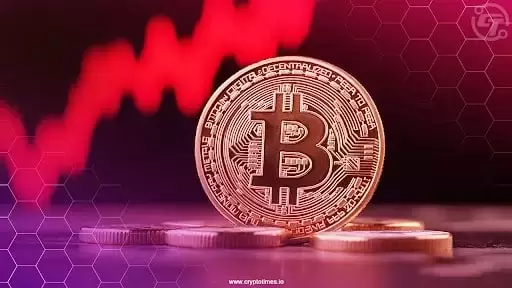 |
|
 |
|
 |
|
 |
|
 |
|
 |
|
 |
|
 |
|
 |
|
 |
|
 |
|
 |
|
 |
|
 |
|
 |
|
Cryptocurrency News Articles
Online Petitions: The Power and Impact in Shaping Activism
Apr 21, 2024 at 03:06 pm
Over 41,000 people have signed a petition opposing anti-transgender legislation in France, launched by the LGBT+ advocacy group Le Coin des LGBT+. While the number of signatures does not guarantee effectiveness, petitions have the potential to raise awareness, mobilize supporters, and influence policymakers. Despite criticism that they represent "slacktivism," petitions can be valuable tools for organizations to engage with potential supporters and demonstrate public activism. However, the CEO of the petition platform Mes Opinions emphasizes that even without achieving specific goals, petitions can raise awareness and contribute to broader societal change.

The Power and Impact of Online Petitions: A Critical Examination
In the realm of contemporary activism, online petitions have emerged as a ubiquitous tool for expressing support for causes and influencing public opinion. While their efficacy has been a subject of debate, the recent surge in such initiatives has sparked renewed interest in their potential impact.
A case in point is the petition launched by "Le Coin des LGBT+," a French LGBTQ+ advocacy group, which garnered over 41,621 signatures within five days of its inception on Change.org. The petition aims to galvanize parliamentary opposition to proposed anti-transgender legislation in France.
Do Signatures Translate to Influence?
The significance of a petition's numerical support is a matter of contention. Thierry Libaert, a member of the European Economic and Social Committee (EESC), cautions against equating the number of signatories with a petition's effectiveness. He cites the example of "L'Affaire du Siècle," an environmental petition that garnered over 2.3 million signatures but yielded inconclusive results.
Conversely, the petition to pardon Jacqueline Sauvage, who was convicted of killing her abusive husband, secured over 40,000 signatures and ultimately led to her release from prison under a presidential pardon granted by François Hollande.
Beyond Signatures: The Multifaceted Role of Petitions
While petitions may not possess direct legal force, they can serve as valuable instruments for raising awareness, mobilizing support, and placing issues on the agendas of decision-makers. Libaert emphasizes that petitions can influence public discourse and compel policymakers to consider their perspectives, even if the number of signatures falls short of expectations.
Their ability to engage the public is another key aspect. Petitions provide a platform for individuals to express their concerns and contribute to the shaping of public opinion. The presence of a recognizable figurehead can further enhance a petition's reach and appeal.
Moreover, organizations leverage petitions to expand their base of supporters and mobilize activism beyond the digital realm. "They hope to engage them in other forms of activism, such as demonstrations," Libaert explains. "Petitions are part of a gradual process of citizen engagement."
Slacktivism or Legitimate Activism?
Despite the potential impact of petitions, Libaert cautions against regarding them as a substitute for more proactive forms of activism. He likens petitions to "slacktivism," a term coined to describe the tendency for individuals to express their support for causes through online gestures that require minimal effort. While petitions facilitate the channeling of discontent, they should not be viewed as a panacea for social change.
The Platform Effect
Océane, CEO of Mes Opinions, a French online petition platform, acknowledges the concerns surrounding the efficacy of online petitions. "We regularly receive questions from our users about whether petitions are truly meaningful," she says. "It's understandable, considering the sheer volume of causes and the uncertainty of their outcomes." Mes Opinions alone hosts over 1,000 new petitions monthly, and the number has surged in the wake of the COVID-19 pandemic.
Impact Beyond Victory
Nonetheless, Océane maintains that petitions serve a valuable purpose, citing cases where they have achieved their objectives, such as the discontinuation of the sale of live baitfish at Decathlon, the removal of an author accused of promoting pedophilia from the Angoulême comics festival, and the prevention of school closures.
Even in the absence of a clear victory, petitions can generate substantial impact by raising awareness and shaping public discourse. Océane points to the example of a petition highlighting the forced labor of Uyghurs in China, which failed to halt the funding of exploitative practices by major brands but nonetheless brought the issue to the attention of 70,000 concerned citizens. "Although it did not result in an immediate change, it represents an important step towards broader mobilization," she explains.
Empowering Citizens
For Julia, a 27-year-old supporter of the "Le Coin des LGBT+" petition, signing the document was an act of solidarity and resistance against proposed legislation that she believes perpetuates transphobia. "It's the simplest way to express one's support and convey their position to elected officials," she says. "When petitions go viral, they can draw attention to important social issues, as evidenced by this very article."
Conclusion
Online petitions have become an integral part of the contemporary democratic landscape, offering individuals a means to voice their concerns, mobilize support, and influence policy decisions. While their effectiveness may vary, they provide a platform for citizens to engage in activism and contribute to the shaping of public opinion. Their true impact lies not only in numerical support but also in the ability to raise awareness, foster dialogue, and inspire further action.
Disclaimer:info@kdj.com
The information provided is not trading advice. kdj.com does not assume any responsibility for any investments made based on the information provided in this article. Cryptocurrencies are highly volatile and it is highly recommended that you invest with caution after thorough research!
If you believe that the content used on this website infringes your copyright, please contact us immediately (info@kdj.com) and we will delete it promptly.
-

-

-

-

-

-

-

-

- MANTRA ($OM) Prepares for Another Breakout as Bullish Predictions, Regulatory Milestones, and Institutional Integrations Converge
- Apr 03, 2025 at 05:30 pm
- MANTRA ($OM), one of the breakout stars in the real-world asset (RWA) tokenization space, is making headlines again as bullish predictions, regulatory milestones, and institutional integrations converge to shape a promising outlook for Q2 2025.
-




























































